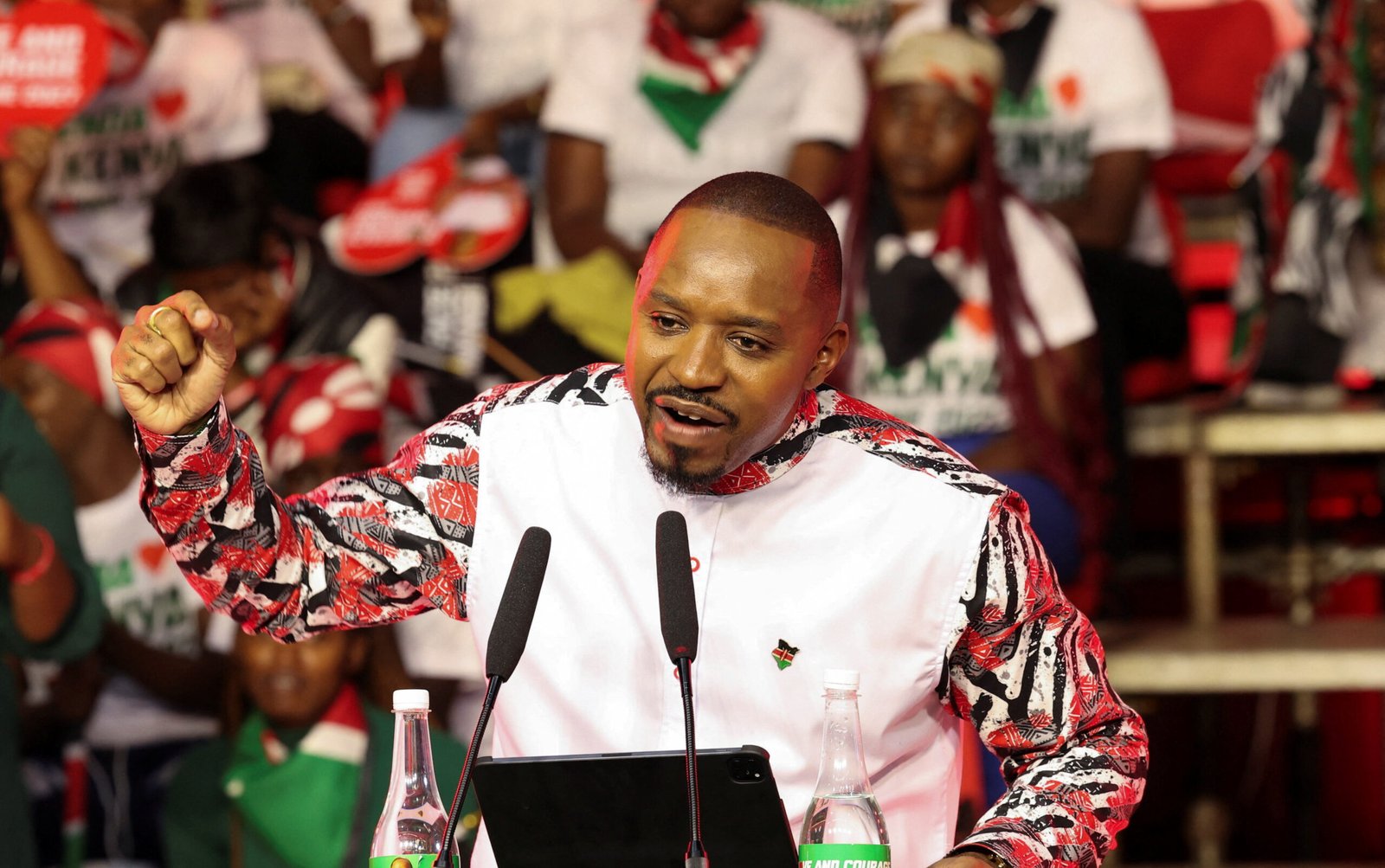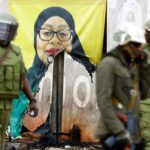Kenyan human rights activist Boniface Mwangi, long regarded as one of the country’s most outspoken defenders of social justice, has officially declared his intention to run for president in the 2027 elections.
His decision marks a bold step for a man better known for mobilising protests than contesting power, potentially shifting Kenya’s political conversation toward integrity, accountability, and citizen-driven change.
Speaking in Nairobi on Wednesday, Mwangi argued that the country’s leadership had betrayed citizens by failing to deliver on basic governance. “You pay taxes expecting services, yet you are compelled to pay bribes for the same services. This cannot continue. Our country must be taken back into the hands of the people,” he declared.
Mwangi first gained recognition during the 2007–08 Kenyan crisis, when his work as a photojournalist captured the brutality of post-election violence. Over the years, he transitioned into activism, founding initiatives that challenged corruption, police brutality, and electoral injustice. In 2017, he unsuccessfully vied for a parliamentary seat, running on a reformist platform that positioned him against Kenya’s entrenched political class.
Mwangi’s announcement comes at a time of growing frustration, particularly among young Kenyans. In recent years, youth-led movements have organised mass demonstrations against corruption, unemployment, and rising costs of living. Many of these movements, analysts argue, lack structured political vehicles to translate activism into policy influence. Mwangi’s candidacy could serve as the bridge between protest energy and electoral participation.
Also Read; Russia Partners With Niger On Historic Nuclear Project
Yet, turning activism into political capital will not be easy. Kenya’s politics is shaped by powerful party machines, deep financial networks, and entrenched ethnic alliances. Breaking through such barriers requires more than ideals—it demands strategy, funding, and broad-based appeal.
Mwangi’s journey also reflects a wider trend across Africa, where activists and civil society leaders are moving into formal politics. From musicians-turned-politicians in Uganda, such as Bobi Wine, to activist-led movements in West Africa, a new generation is challenging old systems of governance. Mwangi’s regional presence has already drawn attention; in May, he was expelled from Tanzania after attending a court hearing for opposition leader Tundu Lissu, underscoring the delicate balance between activism and state power in East Africa.
Globally, his announcement resonates with debates about how democracies can reinvent themselves when traditional political elites lose public trust. In an age where youth are more connected, politically aware, and restless, Mwangi’s candidacy could represent an experiment in whether grassroots-driven politics can compete with the weight of institutional power.







